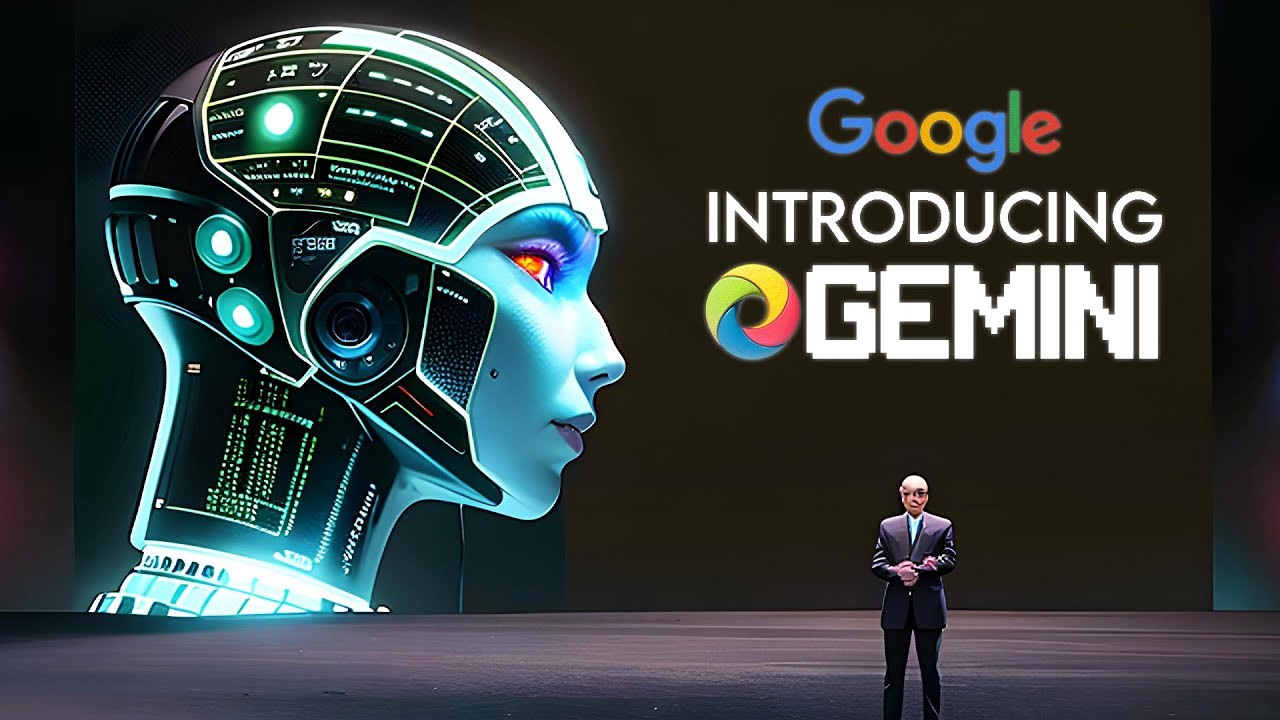Description

Disclaimer: Copyright infringement not intended.
Context
- Google Gemini is a novel multimodal general AI model introduced by Google, positioned as a versatile and powerful tool.
Details
- This AI model has been developed from scratch, marking it as a collaborative effort by diverse teams within Google.
- The aim is to create an AI that feels less like a conventional software and more like a useful and intuitive assistant.
Key Features and Capabilities of Gemini
- Multimodal Nature: Gemini distinguishes itself by its multimodal capability, enabling it to process and comprehend various data formats, including text, code, audio, images, and videos.
- Enhanced Power: Google claims that Gemini Ultra, the largest model, surpasses existing benchmarks in language model research on 30 out of 32 academic benchmarks. It excels in massive multitask language understanding (MMLU) across 57 subjects, demonstrating superior problem-solving abilities.
- Code Generation: Gemini is designed to understand, explain, and generate high-quality code across popular programming languages like Python, Java, C++, and Go.
Gemini Sizes and Functionality
- Ultra, Pro, and Nano Models: Google introduces Gemini in three distinct sizes catering to different complexities and applications.
- Ultra: Targeted for highly intricate tasks, currently available to select customers, developers, and safety experts for initial testing and feedback.
- Pro: Meant for scaling across a broad range of tasks, available on Bard for regular users and accessible to developers and enterprise customers through the Gemini API.
- Nano: Focused on on-device operations, already integrated into Pixel 8 Pro devices and soon available for Android developers through AICore on Android 14.
Availability and Rollout Strategy
- While Gemini Ultra is undergoing trust and safety checks and limited to select users, it's expected to be rolled out to developers and enterprise clients early next year.
- Gemini Pro is accessible on Bard for everyday users and via Google AI Studio or Google Cloud Vertex AI for developers and enterprise customers.
- Gemini Nano is already operational on Pixel 8 Pro devices and will soon be accessible to Android developers.

Integration and Impact on Google Services
- Google plans to integrate Gemini across various services, including Search, Ads, Chrome, and Duet AI, aiming for enhanced user experiences.
- Initial experiments with Gemini in Google Search indicate faster and improved Search Generative Experience (SGE) with reduced latency and enhanced quality.
Addressing Concerns
- Acknowledgment of potential issues related to factuality and hallucinations in the AI model.
- Google's efforts to improve accuracy in responses and implementing additional safety protocols to address concerns like bias, toxicity, cyber-offense, persuasion, and autonomy.
Comparison with ChatGPT 4
- Initial observations suggest that Gemini holds an edge over ChatGPT 4 in terms of flexibility, video processing capabilities, and offline device functionality.
- Gemini's current accessibility for free contrasts with ChatGPT 4, which is available to paid users.
Introduction to AI Models
- Artificial Intelligence (AI) models are algorithms or systems designed to simulate human-like cognitive processes, enabling machines to perform tasks that typically require human intelligence.
- These models utilize large datasets, sophisticated algorithms, and computational power to learn, reason, and make decisions.
Significance of AI Models:
AI models have revolutionized numerous industries by enabling automation, prediction, and data analysis at unprecedented scales. Their significance lies in:
- Enhancing efficiency and accuracy in tasks like data analysis, pattern recognition, language processing, and decision-making.
- Powering innovations in healthcare, finance, manufacturing, autonomous vehicles, and various other sectors.
- Enabling personalized user experiences, recommendation systems, and natural language understanding.
Types of AI Models:
Machine Learning (ML):
- Subfield of AI that enables systems to learn and improve from experience without explicit programming.
- Types include supervised learning, unsupervised learning, reinforcement learning, and semi-supervised learning.
Deep Learning:
- Subset of ML that uses neural networks with multiple layers to extract intricate patterns from data.
- Widely used in image and speech recognition, natural language processing, and autonomous systems.
Natural Language Processing (NLP):
- AI model focused on understanding and processing human language.
- Applications include language translation, sentiment analysis, chatbots, and text summarization.
Computer Vision:
- AI models enabling computers to interpret and understand visual information.
- Used in image recognition, object detection, facial recognition, and medical image analysis.
Applications of AI Models:
- Healthcare: Diagnosis assistance, drug discovery, personalized medicine, and predictive analytics.
- Finance: Fraud detection, algorithmic trading, risk assessment, and customer service.
- Manufacturing: Process optimization, predictive maintenance, quality control, and supply chain management.
- Autonomous Systems: Self-driving cars, drones, robotics, and smart home devices.
Challenges and Ethical Considerations:
Bias and Fairness:
- AI models can inherit biases from training data, leading to unfair outcomes.
- Ensuring fairness and mitigating biases remains a challenge.
Privacy and Security:
- Concerns over data privacy, unauthorized access, and potential misuse of AI-powered systems.
Transparency and Accountability:
- Understanding the decision-making process of AI models and holding them accountable for their actions.
Future Prospects and Developments
- Explainable AI (XAI): Focuses on making AI models more interpretable and transparent to enhance trust and accountability.
- Federated Learning: A privacy-preserving approach where AI models are trained across decentralized devices without centralizing data
- Quantum Computing and AI: Potential synergy between quantum computing and AI for solving complex problems.

Conclusion
AI models continue to redefine industries, offering immense potential for innovation and growth. While their applications are vast and promising, addressing challenges related to ethics, bias, transparency, and security remains crucial for their responsible and beneficial integration into society.
|
PRACTICE QUESTION
Q. Discuss the role and significance of AI models like Google Gemini in modern technological advancements. Also, elaborate on the challenges and ethical considerations associated with the deployment of advanced AI models. (250 Words)
|











